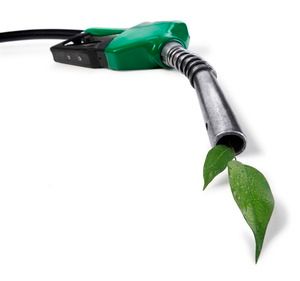Minnesota begins transition to B20 for summer months

April 15, 2024
BY Minnesota Soybean Research & Promotion Council
Now in its seventh year since the B20 requirements were enacted, the state of Minnesota is beginning its transition toward a 20-percent biodiesel blend (B20) during the summer months. Between the months of October through March, the state of Minnesota requires all diesel to contain at least 5% biodiesel (B5), from April 1-14, all diesel must contain at least 10% (B10) biodiesel. Starting April 15, all diesel must contain a 20% biodiesel blend through the rest of the summer.
The state of Minnesota has remained a leader in biodiesel since legislation was first enacted in 2005 that required a 2% biodiesel blend, which was upped to 5% in 2009 and 10% in 2014. In 2018, Minnesota made history by becoming the first state to enact a B20 minimum blending requirement.
Using a B20 blend in the summer and B5 in the winter equates to removing the emissions from nearly a quarter of a million vehicles from Minnesota roads every year. Biodiesel makes a significant economic impact, contributing nearly $1.7 billion towards Minnesota’s GDP and supports nearly 5,400 full time jobs in the state. Minnesota produces approximately 85 million gallons of the renewable fuel annually through their biodiesel plants in Albert Lea, Brewster and Isanti.
“The biodiesel industry provides significant value for our soybean farmers in Minnesota. Every gallon of biodiesel sold contributes more than a dollar per bushel for our farmers,” said Mike Youngerberg Minnesota Soybean Research & Promotion Council (MSR&PC) Senior Director of Product development. “On top of that, studies show that biodiesel is a proven, reliable solution to address climate and energy concerns.”
Biodiesel reduces greenhouse gas emissions by more than 50% and displaces roughly 130 million gallons of petroleum diesel in Minnesota each year. Using a B20 blend in the summer and a B5 blend in the winter equates to removing the emissions from nearly a quarter-million vehicles from state roads every year.
Advertisement
Advertisement
The Minnesota Department of Commerce reminds Minnesotans that the biodiesel blend requirement applies to sales of diesel meant to be used in internal combustion engines, not to fuel already stored in bulk storage tanks at farms or other businesses. All bulk diesel sold and delivered to tanks that fuel diesel equipment, such as construction equipment, truck fleets, farm equipment and generators, must contain at least the following minimums:
Deliveries between Oct. 1 – March 31: 5%
Deliveries between April 1 – April 14 (transition to 20%): 10%
Deliveries between April 15 – Sept. 30: 20%
“Make sure your tank is clean,” said Minnesota farmer Chris Hill, who sits on the Clean Fuels Alliance America Board. “Treat it like you would your combine or tractor.”
Advertisement
Advertisement
Related Stories
The U.S. EPA on July 8 hosted virtual public hearing to gather input on the agency’s recently released proposed rule to set 2026 and 2027 RFS RVOs. Members of the biofuel industry were among those to offer testimony during the event.
The USDA’s Risk Management Agency is implementing multiple changes to the Camelina pilot insurance program for the 2026 and succeeding crop years. The changes will expand coverage options and provide greater flexibility for producers.
EcoCeres Inc. has signed a multi-year agreement to supply British Airways with sustainable aviation fuel (SAF). The fuel will be produced from 100% waste-based biomass feedstock, such as used cooking oil (UCO).
President Trump on July 4 signed the “One Big Beautiful Bill Act.” The legislation extends and updates the 45Z credit and revives a tax credit benefiting small biodiesel producers but repeals several other bioenergy-related tax incentives.
CARB on June 27 announced amendments to the state’s LCFS regulations will take effect beginning on July 1. The amended regulations were approved by the agency in November 2024, but implementation was delayed due to regulatory clarity issues.
Upcoming Events










